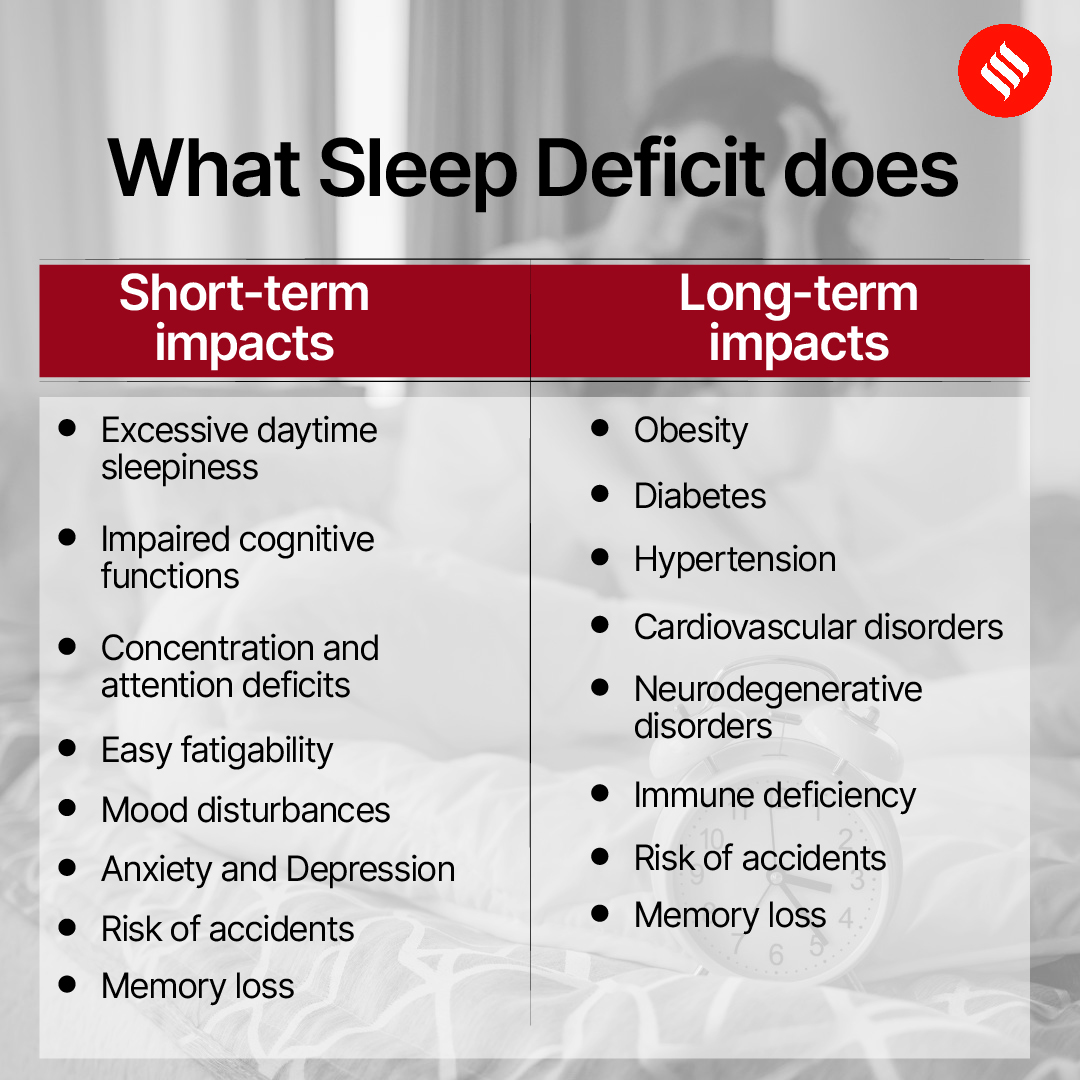Heart health and blood pressure: Study finds why even six hours of sleep or weekend catch-up sleep may not be enough
Certain hormones are released during night sleep only and their impaired function due to sleep deprivation is associated with daily damage that causes high blood pressure and heart rate, increased body weight and insulin resistance, explain cardiologists.
 eight-hour sleep at night is required to heal the body from the inflammation it experienced during the day. (Source: Freepik)
eight-hour sleep at night is required to heal the body from the inflammation it experienced during the day. (Source: Freepik) If you thought that a good five to six-hour sleep is keeping you in fine fettle and that you do not need to sleep eight to nine hours because you are young and active, then you are highly mistaken. Similarly, a few long nights for a project presentation or a single late-night party are not an exception that you can allow yourself easily. That’s because even a short duration of sleep deprivation adversely affects the heart rate and blood pressure that doesn’t reverse easily, says a study.
Researchers at the Penn State University, US, followed 15 healthy men for 11 days, who had five nights of sleep deprivation. They found that even a short period of sleep deprivation, which was later compensated with two nights of adequate and peaceful slumber, was not sufficient to reduce the elevated blood pressure and heart rate caused by staying up. The findings were published in Psychosomatic Medicine. “Though the study is of a limited number of healthy men and of a shorter duration, its results show that even a short duration of sleep deprivation for five days is sufficient to adversely affect cardiovascular health,” says Prof (Dr) Rajesh Vijayvergiya, Department of Cardiology, Advanced Cardiac Center, Post Graduate Institute of Medical Education and Research (PGIMER) Chandigarh.
So why can’t we undo the damage caused by daily sleep deficit?
Explains Dr Virendar Sarwal, Director, Department of Cardiovascular and Thoracic Surgery, IVY Hospital, Mohali, “The logic is simple. This eight-hour sleep at night is required to heal the body from the inflammation it experienced during the day. It helps both heart and brain health and aids in recovering the wear and tear the body suffers during the 16 hours in a day. Lack of sleep leads to burnout and causes heart issues as we are witnessing these days.” Weekend rest, he adds, does not help because daily healing has not happened, and the heart keeps getting damaged till it succumbs finally. “The simple principle is to let it heal daily as residual inflammation results in changes in blood pressure, heart rate and loss of oxygenation to body tissues. Both are dangerous for heart and brain health,” he adds.
How can lack of sleep cause obesity, diabetes and cardiovascular diseases?
Dr Sandeep Bansal, Professor, Department of Otolaryngology and Head Neck Surgery, PGIMER, Chandigarh, says we often tend to focus on short-term consequences like lack of concentration, fatigue, irritability and memory issues, which we think we can control. “But over time, sleep deficit leads to and aggravates chronic health conditions like obesity, diabetes, cardiovascular diseases and hypertension. It also increases the likelihood of developing neurodegenerative disorders such as Alzheimer’s disease. Inadequate sleep weakens the immune system,” says he. That’s because shifting around sleep cycles results in measurable differences in body metabolism. “There’s excess calorie intake after dinner, reduced energy expenditure, increased weight and detrimental changes in how the body uses insulin. Even if you resolve sleep debt on paper, the small-time damage through the week has been done,” adds Dr Bansal.
How much duration of sleep per day is necessary for an adult healthy individual?
According to Dr Vijayvergiya, the duration may vary depending on age, overall health of an individual and the surrounding environment but that seven to nine-hour window of rest is mandatory. “We need uninterrupted sleep at night. Splitting the total duration between day and night would adversely affect the sleep cycle, which leads to unfavourable, long-term health issues. That’s because certain hormones are released at night only, hence their impaired release due to sleep deprivation is associated with high blood pressure and heart rate, increased body weight and insulin resistance, leading to Type 2 diabetes. An increase in stress hormones, generalised inflammation, and impaired endothelial (inner luminal lining of arteries) functions of blood vessels adversely affect cardiovascular health, leading to increased atherosclerosis and heart attacks. Other than these metabolic changes, sleep deprivation also affects mental alertness and concentration, cognitive performance and emotional well-being,” says he.
Is an afternoon nap during office hours beneficial?
 (Source: IE graphics)
(Source: IE graphics)
A quick daytime nap, which is strategically managed, can be of some benefit. “It should be less than 30 minutes, preferably after lunch when the mental alertness is somewhat lowered for a short duration. In case the afternoon nap is extended for a long duration, associated with a lack of physical and mental alertness after the nap, then it could affect sleep quality at night,” says Dr Vijayvergiya.
How do we plan our social life to maintain a healthy sleep regime?
Just prioritise, plan and balance the weekend parties with physical/mental rest. A few other contributory factors such as transition stress and excess consumption of alcohol, caffeine and smoking also lead to low energy and disrupt sleep cycles, according to Dr Vijayvergiya.
Photos




- 01
- 02
- 03
- 04
- 05



























